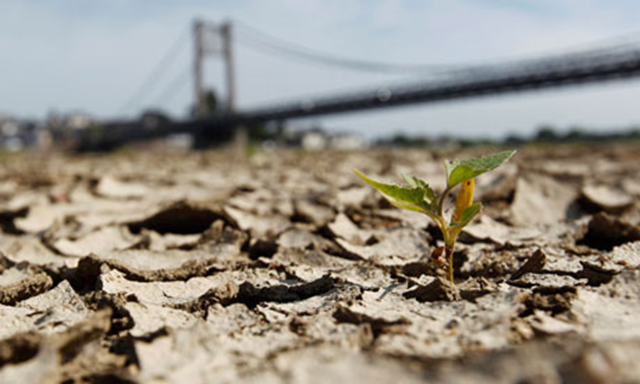Europe prays for rain as drought worsens – Danube river level falls to 100-year low
By Peggy Hollinger in Paris, Chris Bryant in Vienna, and Gerrit Wiesmann in Berlin
June 8 2011 Europe is in the grip of a new north-south divide. Yet this time the gap is not about economic competitiveness but rainfall, and it is the north, not the south, that is lagging behind. While southern Europe experienced a rather damp spring, much of northern Europe is in the midst of a drought. In France, the months of March and May were the hottest for more than a century, while England and Wales had their second-driest spring since 1910. Between January and April, “severe” rain deficits were recorded in Belgium, the Netherlands, Germany, Denmark, Hungary and Austria, according to the European Commission. … It is France’s worst drought in more than 30 years, according to Bruno Le Maire, agriculture minister, with rainfall at barely 45 per cent of the average between 1971 and 2000. Restrictions on water use are already in place in nearly two-thirds of France’s 96 mainland “departments”. Nicolas Sarkozy, president, is expected to announce aid measures for farmers on Thursday. Meanwhile, in the Danube river – one of Europe’s most important waterways – the volume of water dropped to a 100-year low in May. … Christian Steindl, managing director of the Ennshafen port on the Danube, says that, while low water levels are not unheard of, it is the timing that is unusual. “In August this can happen, but not in May.” … Meanwhile, the electricity generated by hydropower has dropped 30 per cent in France because of lower water levels. Austria has also seen a decline in the second quarter of this year. … Not everyone has given up hope. Rainer Lingenfelder, who runs a 15-acre vineyard in Pfalz, a winemaking region in south-western Germany, says: “Because vines have very deep roots with which they tap for water, the lack of rain hasn’t hit us quite as hard yet as other parts of agriculture.” The warm weather caused his vines to bud and blossom early, promising luscious, sugary grapes that could produce full-bodied red wines with a high alcohol content, Mr Lingenfelder says. But another four weeks without rain could dash those hopes. “I see some grey clouds on the horizon. I’m going to stop talking now and get on my knees to pray,” he says.
